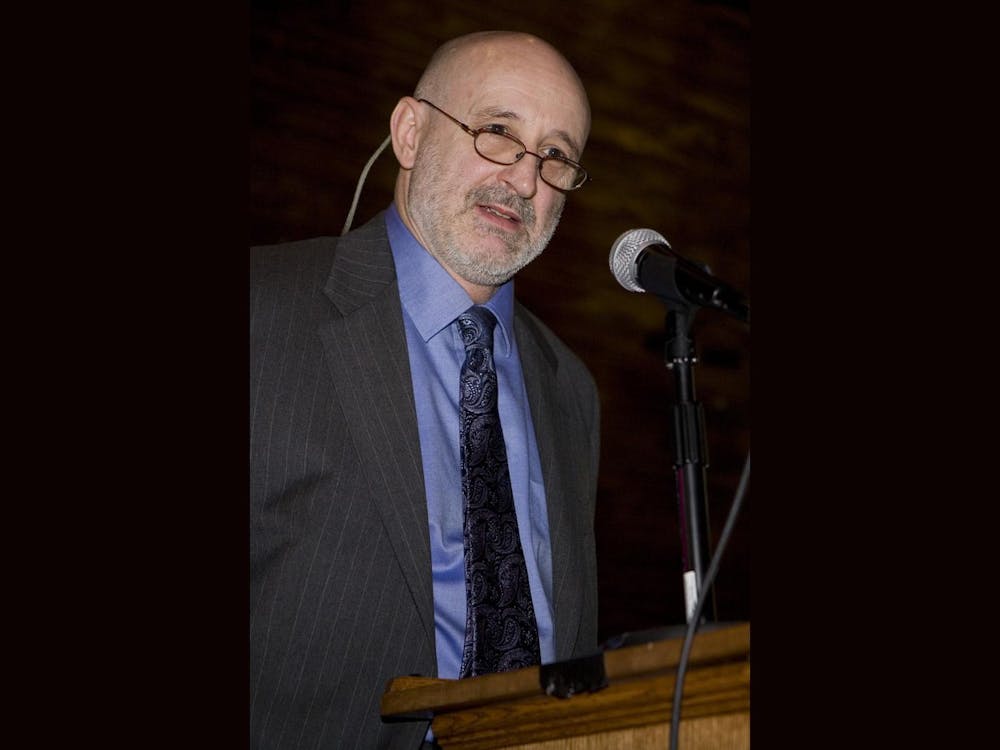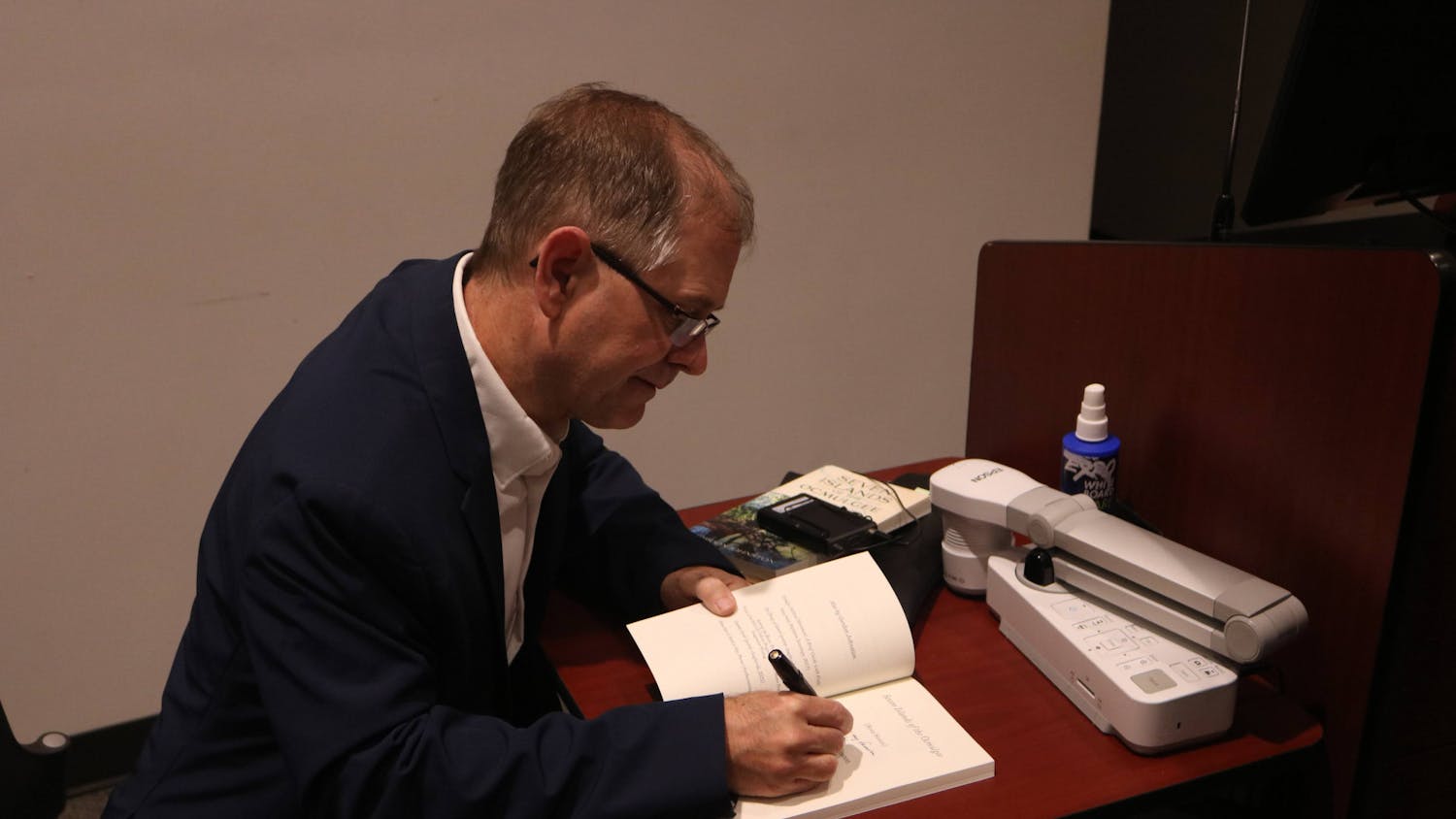In the spring semester of 1970, David Bottoms, an undergraduate Mercer student from Canton, Georgia met and visited with James Seay, an American poet from Mississippi who came to campus as a guest writer.
Bottoms was the editor of Mercer’s literary magazine "The Dulcimer," which was then in its earliest years of publication and would, some thirty years later, go on to be the ninth Georgia Poet Laureate.
The day that Seay came to Mercer’s campus proved to be a pivotal day in Bottoms’ long and prolific career. It was the “day it [writing] got much more serious for me. A real poet came to campus,” Bottoms said in an interview with the Georgia Writers Hall of Fame.
“I saw in Jim Seay that you could write about the American South. You could write about where you were from. You didn’t have to write about Wales. You didn't have to write about Paris,” Bottoms said.
And Bottoms did. His work immortalizes stories of the South in a way that rings as true as church bells on a Sunday morning - in ways that I, as a Southerner and writer, find immensely comforting and dramatically jarring. Bottoms’ work holds a mirror to the truths of the American South and engages readers with gorgeous imagery, insightful metaphor, and compelling narrative.
“David was very much a Southern man. A sense of place was very important to him and a sense of the past, a past that has vanished,” said Laurie Watel in an article in The Atlanta Journal-Constituion.
Bottoms, who grew up in a house with no books except the King James Bible and a book by Billy Graham, a fact he shared with the Georgia Writers Hall of Fame, had a prolific career, during which he was awarded National Endowment for the Arts and Guggenheim Foundation fellowships until early March 2023 when he passed from a rare neurodegenerative disease that targets the brain stem called progressive supranuclear palsy. Bottoms battled the disease for a long time, but even at the end "he was still there," said Kelly Beard, Bottoms' wife.
In 1979, Bottoms’ first poetry collection “Shooting Rats at the Bibb County Dump” was awarded the prestigious Walt Whitman Award from the Academy of American Poets.
During his career, he also held the Amos Chair in English Letters at Georgia State University, wrote nine books of poetry, was inducted into the Georgia Writers Hall of Fame, received the Levinson Prize, an Ingram-Merrill Award and an American Academy and Institute of Arts and Letters award.
Yet he began where so many of us do: as a student, unsure of where life would take him, but studying here, on Mercer’s campus. While the work of his professional career is canonized in Southern literature, there are pieces of his poetry that may only exist in archive copies of The Dulcimer.
Bottoms, who acted as an editor of the student-run literary and arts magazine for two years, had a strong and somewhat snarky editorial voice. In the introductory letter of the Spring 1970 issue of The Dulcimer, Bottoms, along with his counterparts, wrote after meeting Seay, “Our astonishment at and gratitude for confrontation with an actualization of the poetic ideal, reflected in a man and his work, moves us to express to the Mercer student the idea that one who writes poetry is not, of necessity, an ‘effete snob.’”
Another editorial note signed by Bottoms, this one from Winter 1970, reads, “Apparently, our critics do not realize that publishing a literary magazine is an entirely different endeavor from printing a weekly column of campus headlines and social gossip.”
While these provide a unique and colorful insight into Bottoms’ history and Mercer’s historical relationship with our literary magazine, it is his poems that truly highlight his early authorial voice.
I have chosen two of his poems published in The Dulcimer to include at the bottom of this article. The first is a sonnet, aptly titled “Sonnet,” and the next, his first to be published in The Dulcimer that hints at his commitment to the South, is titled “Mississippi,” and was published after Jim Seay’s visit to campus.
I have chosen these poems, now myself with the perspective of being the Dulcimer's editor, because they beautifully encompass Bottoms’ journey as a poet.
In “Sonnet,” the speaker, likely Bottoms, voices struggles that are reminiscent of a young writer attempting to find their authorial voice. The first lines read, “Still strange to age with dreams but seldom ripe, / No pattern set, nor goals to kindly lead / This youthful pen unto it’s rightful need, / I wind my lines along this ancient pipe / That turns loose poems to the sonnet type.”
I chose the second poem, “Mississippi,” because the stylistic and poetic choices seem to look forward to what would come for Bottoms, toward the poetry that earned him renown during his long career, toward the poetry that highlights the American South, toward the poetry that the world gets to enjoy and study.
Of poetry, Bottoms said in an interview with The Atlanta Journal-Constitution in 2011, “A lot of poetry out there today is all wit, irony, snark, with no significance. It’s not much more than a stand-up act. Poetry is supposed to be about getting at the deeper meaning of things. And the most important thing is to use language to seek meaning in life.”
Even in his earliest years writing at Mercer, Bottoms’ poetry did this.
Bottoms is survived by his wife and daughter. A public celebration of his life with readings from his upcoming retrospective book, “A Scrap in the Blessings Jar: New and Selected Poems,” will be held in the fall.
“Sonnet,” The Dulcimer, Winter 1970
Still strange to age with dreams but seldom ripe,
No pattern set, nor goals to kindly lead
This youthful pen unto it's rightful need,
I wind my lines along this ancient pipe
That turns loose poems to the sonnet type,
Where poets with the form would often plead
That skill and Muse would of its borders heed.
So I while young must find the strength to wipe
Strong hopes of freedom from apprentice eyes,
And from old masters take this form to find
What talents it would seem for me most wise
To follow with an aging willful mind.
Burdened with dreams and cruel wishful lies
I seek a method gentle, quick, and kind.
“Mississippi,” The Dulcimer, Winter 1971
When the ceremonies were all over,
just as the crow flies
I crossed the counties that jigsaw Georgia.
And through Pontotoc on to Panola
time turned the sunrise
that brought me to my uncle’s grave.
I saw that morning light and could not think
what had turned the world
with the certain motion that swept away
the wind which filled my uncle’s failing lungs.
Nor did I hope to find any answer
or comfort before the turning of dirt
Must plant my own death.
I had come to see if the spirit’s seed
had been well planted,
and to be by my aunt and her children
when least of all they wished to be alone
in the absence of official mourners.
Of now and then, for every seed in earth,
time alone will turn it's growing stages.
And time will not pass
that garden of graves in Southern ground
till seeds in those graves
yield spirit to the seasoned stars.





